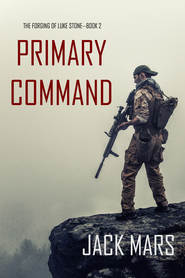По всем вопросам обращайтесь на: info@litportal.ru
(©) 2003-2025.
✖
Recall Zero
Автор
Год написания книги
2019
Настройки чтения
Размер шрифта
Высота строк
Поля
After testing out of her senior year of high school, and unbeknownst to Zero, Maya applied to the military academy West Point. Even though her grades were excellent, she had no ROTC experience and no plans for military service, and therefore wouldn’t have made the most attractive candidate. But she had a plan for that too.
In an act of cunning and guile that foreshadowed an illustrious career in covert operations, Maya went over her father’s head to fellow agent (and friend) Todd Strickland. Through him, and under the pretense of being Agent Zero’s daughter, she managed to secure a letter of recommendation from then-president Eli Pierson, who thought he was doing Zero a personal favor. She was accepted into West Point, and moved to New York before the end of that first summer after discovering the truth about her mother.
Zero found out all of this while she was packing her bags. By then it was too late to stop her, though not for lack of trying. But no amount of pleading would dissuade her.
She was in her second year now, and even though the ties between father and daughter were nearly severed, Maria kept tabs on Maya as best she could and updated Zero. He knew that she was top of her class, excelling in everything she did, and earning admiration from the faculty. He knew that she was heading toward great things.
He just wished that it wasn’t the same career path that had gotten her mother killed and ruined the relationship with her father.
“So.” Greg cleared his throat, sitting beside Maya on the sofa while Zero sat across from them in a recliner. “Maya tells me you’re an accountant?”
Zero smiled thinly. Of course Maya would choose such a bland occupation as his cover. “That’s right,” he said. “Corporate finance.”
“That’s… interesting.” Greg forced a smile in return.
What a sycophant. What does she see in this guy? “And what about you, Greg?” he asked. “What do you plan to do? Become an officer?”
“No, no, I don’t think that’s for me.” The kid waved a hand as if swatting away the notion. “I plan to go into the NCAVC. Specifically, the BAU…” He trailed off and chuckled lightly to himself. “Sorry, Mr. Lawson, I forgot I was talking to a civilian. I want to be an FBI agent, with their Behavioral Analysis Unit. Violent Crime Division. You know, the guys who hunt serial killers and domestic terrorists and such.”
“Sounds exciting,” Zero said flatly. Of course he knew what the NCAVC was, and the BAU—just about anyone who turned on prime time television knew that—but he didn’t say so. In fact, he had little doubt that if this smarmy kid across from him knew who he was, Agent Zero, he would wipe that unctuous grin off his face and devolve into a slobbering fan in point-five seconds flat.
But he couldn’t say any of that. Instead he added, “Sounds ambitious, too.”
“Greg can do it,” Maya chimed in. “He’s top of second class.”
“That means ‘junior,’” Greg offered to Zero. “But we don’t call them that at The Point. And Maya here is the best in third class.” He reached over and gently squeezed Maya’s knee.
Zero had to physically restrain himself from his lip curling in a snarl. Suddenly he understood why Maya brought this boy with her; he was more than just a buffer between them. With him there, they couldn’t talk openly. There would be no talk of the CIA, no talk of the past. Hell, he wasn’t even sure he could ask the one thing he wanted to ask the most, which was about Sara.
Maya leaving for school crushed him. But Sara… even after all this time, it felt like that nail in the coffin had pierced straight through to his heart.
Greg was still talking, saying something about the FBI and cleaning house in light of the scandal that had rocked the former administration, and how his family had connections, or something of the like. Zero wasn’t listening. He looked over at her, his daughter, the young woman he had raised, given everything he could. He had changed her diapers. Taught her to walk and talk and write and play softball and use a fork. He’d grounded her, hugged her when she cried, brightened her day when she was feeling down, put Band-Aids on scraped knees. He’d saved her life and gotten her mother killed.
When he looked over at her, tried to catch her eye, she looked away.
And in that moment, he knew. There would be no reconciliation, at least not tonight. This was a formality. This was Maya’s way of saying you deserve to know that I’m alive and well, but not much more than that.
She stared at the carpet while Greg droned on about something or other, her gaze pensive. Her smile faltered, and as it vanished, so did Zero’s hope of getting his daughter back.
CHAPTER THREE
Maya dipped a crust of sourdough into the Polish stew and chewed it slowly. It was delicious, better than the food that the academy served, but she didn’t have much of an appetite. Her dad was seated across from her at the small dining table, with Maria on her left and Greg to the right.
He was staring at her again.
She wished she hadn’t come. She didn’t owe him anything. And she knew that she couldn’t bring herself to look up, to look into his eyes and see the unmasked pain of their rift. So instead she stared at a mottled chunk of kielbasa in her bowl.
Being here, in this new house and seeing him living with Maria, dark circles forming under his eyes and weight pinched around his midsection, her own father felt like a stranger to her. He no longer had the youthful, playful light in his eyes like he did when they were growing up. She hadn’t heard his laugh in more than a year. She missed their sarcastic, quipping exchanges and at times heated debates.
“Isn’t that right, Maya?”
“Hmm?” She looked up at the sound of her name to find Greg gazing at her expectantly. “Oh. Yeah. That’s right.” Good god, is he still talking?
Greg was not actually her boyfriend. At least she didn’t think of it like that. They were being casual about it, unofficial. She knew he liked her—they’d made out a few times, though she wouldn’t let him get any farther than that—yet she couldn’t help but think it was more of a status thing for him than anything else. He came from a good family, a mother in politics and a father high up in the NSA. She was top of her class and (depending on who asked) likely better than him at most things, particularly academics. Some of the other cadets in second and third class made jokes about the two of them being “the prom king and queen of West Point.”
He was cute. He was athletic. He was generally nice enough. But he was also a blowhard, self-centered, and completely oblivious to his faults.
“If you ask me,” Greg was saying, “Pierson should have done hard time. My mother says—my mother was the mayor of Baltimore for two years, did I mention that? Anyway, she says that his negligence was enough to impeach him, or at least indict him when he left office…”
Stop staring at me. She wanted to blurt it out, to shout it even, but she held her tongue. She could feel how desperate her father was to talk to her. That was part of the reason she brought Greg, so that they couldn’t open any cans of worms during this visit. She knew he wanted to ask about Sara. She knew he wanted to apologize, to try to make amends, to put all the ugliness behind them.
The truth was, she didn’t hate him. Not anymore. To hate someone required energy, and she was putting everything she had into school. To her, he was a non-issue. This visit was not reconciliatory; it was bureaucracy. Decorum. Etiquette. The values that the academy instilled in its cadets were not entirely applicable to Maya’s unique situation, but her takeaway was that she should at least have a check-in with the man who raised her, this shell of his former self. If for no other reason than to prove to herself that she could still stand to be in the same room as him.
But now she wished she hadn’t.
“So,” Maria said suddenly. Greg had stopped talking long enough to spoon some stew into his mouth, and Maria was taking full advantage of the temporary reprieve. “Maya. Have you spoken to your sister lately?”
The question took her off guard. She had expected it from her dad, but not from Maria. Still, it was as good a time as any to practice the skills she’d been developing on her own time. She fought the instinct to display any betraying expressions and instead smiled lightly.
“I have,” Maya replied. “Just yesterday, in fact. She’s well.” Only half of that was a lie.
“You have a sister?” Greg asked.
Maya nodded. “Two years younger. She’s in Florida on a work-study program. Very busy.” Another lie, but she told it with ease. She was getting better at that all the time, and often told small, off-the-cuff fibs just for practice—and, admittedly, for a bit of a thrill.
“And, uh…” Her dad cleared his throat. “She’s getting by okay? She has everything she needs?”
“Mm-hmm,” Maya answered curtly without looking at him. “Doing great.”
Greg simpered as he turned to her father. “You ask that like you don’t talk to her, Mr. Lawson.”
“It’s like Maya said,” her dad answered quietly. “Sara is very busy.”
Maya knew that her own sudden departure was a blow to him. But if that was the case, then Sara leaving was a death stroke.
In that first summer, just a few months after their father saved President Pierson’s life, after he told them the truth about their mother and the tension in their home was sky-high, Maya confided her plans in her sister. She told Sara that she had tested out of her senior year of high school and was running down admission to West Point.
As long as she lived, she would never forget the panicked expression on her little sister’s face. Please. Please don’t, Sara had begged her. Don’t leave me alone with him. I can’t do it.
As much as it broke her heart, Maya had made her plans and intended to see them through. So Sara made some of her own. She went online and found a lawyer who would take her case pro bono. Then she filed for emancipation. She knew it was a long shot; there was no proof or evidence of neglect, abuse, or anything like that.
But in a turn that shocked both sisters, their father did not fight it. Less than two weeks after Maya left for military school in New York, her dad attended the court date and, in front of a judge, told his then-fifteen-year-old daughter that if she wanted freedom from him enough to do this, to take him to court for it, she could have her freedom.
That same night came another event that Maya would not soon forget. Her father called her. She ignored it. She still hated him back then. He left her a voicemail that she didn’t listen to for two days. When she finally did, she wished she hadn’t. His voice wavering, breaking even, he told her that Sara was gone. He admitted that he deserved all of it and then some. He apologized three times, and told her he loved her.
It would be another six months before they spoke again.
But Maya did keep up with her sister. Upon emancipation, Sara packed up what she could carry and got on a bus. She ended up in Florida and took the first job she found, as a cashier in a thrift store. She still worked there. She lived in a co-op, a rented house with five other people. She shared a bedroom with a girl a couple years older than her, and a bathroom with everyone else.
In an act of cunning and guile that foreshadowed an illustrious career in covert operations, Maya went over her father’s head to fellow agent (and friend) Todd Strickland. Through him, and under the pretense of being Agent Zero’s daughter, she managed to secure a letter of recommendation from then-president Eli Pierson, who thought he was doing Zero a personal favor. She was accepted into West Point, and moved to New York before the end of that first summer after discovering the truth about her mother.
Zero found out all of this while she was packing her bags. By then it was too late to stop her, though not for lack of trying. But no amount of pleading would dissuade her.
She was in her second year now, and even though the ties between father and daughter were nearly severed, Maria kept tabs on Maya as best she could and updated Zero. He knew that she was top of her class, excelling in everything she did, and earning admiration from the faculty. He knew that she was heading toward great things.
He just wished that it wasn’t the same career path that had gotten her mother killed and ruined the relationship with her father.
“So.” Greg cleared his throat, sitting beside Maya on the sofa while Zero sat across from them in a recliner. “Maya tells me you’re an accountant?”
Zero smiled thinly. Of course Maya would choose such a bland occupation as his cover. “That’s right,” he said. “Corporate finance.”
“That’s… interesting.” Greg forced a smile in return.
What a sycophant. What does she see in this guy? “And what about you, Greg?” he asked. “What do you plan to do? Become an officer?”
“No, no, I don’t think that’s for me.” The kid waved a hand as if swatting away the notion. “I plan to go into the NCAVC. Specifically, the BAU…” He trailed off and chuckled lightly to himself. “Sorry, Mr. Lawson, I forgot I was talking to a civilian. I want to be an FBI agent, with their Behavioral Analysis Unit. Violent Crime Division. You know, the guys who hunt serial killers and domestic terrorists and such.”
“Sounds exciting,” Zero said flatly. Of course he knew what the NCAVC was, and the BAU—just about anyone who turned on prime time television knew that—but he didn’t say so. In fact, he had little doubt that if this smarmy kid across from him knew who he was, Agent Zero, he would wipe that unctuous grin off his face and devolve into a slobbering fan in point-five seconds flat.
But he couldn’t say any of that. Instead he added, “Sounds ambitious, too.”
“Greg can do it,” Maya chimed in. “He’s top of second class.”
“That means ‘junior,’” Greg offered to Zero. “But we don’t call them that at The Point. And Maya here is the best in third class.” He reached over and gently squeezed Maya’s knee.
Zero had to physically restrain himself from his lip curling in a snarl. Suddenly he understood why Maya brought this boy with her; he was more than just a buffer between them. With him there, they couldn’t talk openly. There would be no talk of the CIA, no talk of the past. Hell, he wasn’t even sure he could ask the one thing he wanted to ask the most, which was about Sara.
Maya leaving for school crushed him. But Sara… even after all this time, it felt like that nail in the coffin had pierced straight through to his heart.
Greg was still talking, saying something about the FBI and cleaning house in light of the scandal that had rocked the former administration, and how his family had connections, or something of the like. Zero wasn’t listening. He looked over at her, his daughter, the young woman he had raised, given everything he could. He had changed her diapers. Taught her to walk and talk and write and play softball and use a fork. He’d grounded her, hugged her when she cried, brightened her day when she was feeling down, put Band-Aids on scraped knees. He’d saved her life and gotten her mother killed.
When he looked over at her, tried to catch her eye, she looked away.
And in that moment, he knew. There would be no reconciliation, at least not tonight. This was a formality. This was Maya’s way of saying you deserve to know that I’m alive and well, but not much more than that.
She stared at the carpet while Greg droned on about something or other, her gaze pensive. Her smile faltered, and as it vanished, so did Zero’s hope of getting his daughter back.
CHAPTER THREE
Maya dipped a crust of sourdough into the Polish stew and chewed it slowly. It was delicious, better than the food that the academy served, but she didn’t have much of an appetite. Her dad was seated across from her at the small dining table, with Maria on her left and Greg to the right.
He was staring at her again.
She wished she hadn’t come. She didn’t owe him anything. And she knew that she couldn’t bring herself to look up, to look into his eyes and see the unmasked pain of their rift. So instead she stared at a mottled chunk of kielbasa in her bowl.
Being here, in this new house and seeing him living with Maria, dark circles forming under his eyes and weight pinched around his midsection, her own father felt like a stranger to her. He no longer had the youthful, playful light in his eyes like he did when they were growing up. She hadn’t heard his laugh in more than a year. She missed their sarcastic, quipping exchanges and at times heated debates.
“Isn’t that right, Maya?”
“Hmm?” She looked up at the sound of her name to find Greg gazing at her expectantly. “Oh. Yeah. That’s right.” Good god, is he still talking?
Greg was not actually her boyfriend. At least she didn’t think of it like that. They were being casual about it, unofficial. She knew he liked her—they’d made out a few times, though she wouldn’t let him get any farther than that—yet she couldn’t help but think it was more of a status thing for him than anything else. He came from a good family, a mother in politics and a father high up in the NSA. She was top of her class and (depending on who asked) likely better than him at most things, particularly academics. Some of the other cadets in second and third class made jokes about the two of them being “the prom king and queen of West Point.”
He was cute. He was athletic. He was generally nice enough. But he was also a blowhard, self-centered, and completely oblivious to his faults.
“If you ask me,” Greg was saying, “Pierson should have done hard time. My mother says—my mother was the mayor of Baltimore for two years, did I mention that? Anyway, she says that his negligence was enough to impeach him, or at least indict him when he left office…”
Stop staring at me. She wanted to blurt it out, to shout it even, but she held her tongue. She could feel how desperate her father was to talk to her. That was part of the reason she brought Greg, so that they couldn’t open any cans of worms during this visit. She knew he wanted to ask about Sara. She knew he wanted to apologize, to try to make amends, to put all the ugliness behind them.
The truth was, she didn’t hate him. Not anymore. To hate someone required energy, and she was putting everything she had into school. To her, he was a non-issue. This visit was not reconciliatory; it was bureaucracy. Decorum. Etiquette. The values that the academy instilled in its cadets were not entirely applicable to Maya’s unique situation, but her takeaway was that she should at least have a check-in with the man who raised her, this shell of his former self. If for no other reason than to prove to herself that she could still stand to be in the same room as him.
But now she wished she hadn’t.
“So,” Maria said suddenly. Greg had stopped talking long enough to spoon some stew into his mouth, and Maria was taking full advantage of the temporary reprieve. “Maya. Have you spoken to your sister lately?”
The question took her off guard. She had expected it from her dad, but not from Maria. Still, it was as good a time as any to practice the skills she’d been developing on her own time. She fought the instinct to display any betraying expressions and instead smiled lightly.
“I have,” Maya replied. “Just yesterday, in fact. She’s well.” Only half of that was a lie.
“You have a sister?” Greg asked.
Maya nodded. “Two years younger. She’s in Florida on a work-study program. Very busy.” Another lie, but she told it with ease. She was getting better at that all the time, and often told small, off-the-cuff fibs just for practice—and, admittedly, for a bit of a thrill.
“And, uh…” Her dad cleared his throat. “She’s getting by okay? She has everything she needs?”
“Mm-hmm,” Maya answered curtly without looking at him. “Doing great.”
Greg simpered as he turned to her father. “You ask that like you don’t talk to her, Mr. Lawson.”
“It’s like Maya said,” her dad answered quietly. “Sara is very busy.”
Maya knew that her own sudden departure was a blow to him. But if that was the case, then Sara leaving was a death stroke.
In that first summer, just a few months after their father saved President Pierson’s life, after he told them the truth about their mother and the tension in their home was sky-high, Maya confided her plans in her sister. She told Sara that she had tested out of her senior year of high school and was running down admission to West Point.
As long as she lived, she would never forget the panicked expression on her little sister’s face. Please. Please don’t, Sara had begged her. Don’t leave me alone with him. I can’t do it.
As much as it broke her heart, Maya had made her plans and intended to see them through. So Sara made some of her own. She went online and found a lawyer who would take her case pro bono. Then she filed for emancipation. She knew it was a long shot; there was no proof or evidence of neglect, abuse, or anything like that.
But in a turn that shocked both sisters, their father did not fight it. Less than two weeks after Maya left for military school in New York, her dad attended the court date and, in front of a judge, told his then-fifteen-year-old daughter that if she wanted freedom from him enough to do this, to take him to court for it, she could have her freedom.
That same night came another event that Maya would not soon forget. Her father called her. She ignored it. She still hated him back then. He left her a voicemail that she didn’t listen to for two days. When she finally did, she wished she hadn’t. His voice wavering, breaking even, he told her that Sara was gone. He admitted that he deserved all of it and then some. He apologized three times, and told her he loved her.
It would be another six months before they spoke again.
But Maya did keep up with her sister. Upon emancipation, Sara packed up what she could carry and got on a bus. She ended up in Florida and took the first job she found, as a cashier in a thrift store. She still worked there. She lived in a co-op, a rented house with five other people. She shared a bedroom with a girl a couple years older than her, and a bathroom with everyone else.











